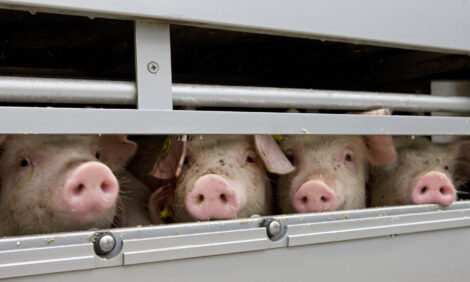



Focusing in on Planned Farrowing
UK - Ross Kelly BVMS, MRCVS from Schering-Plough Animal Health, looks at the benefits of planned farrowing, pointing out that sows, piglets and stockpersons all gain from the practice.
Planned Farrowing is a highly effective method of improving breeding and production flow on the pig unit.
The key to any successful breeding unit is to firstly produce the greatest number of pigs born alive and then keep them alive until sale. Having the ability to predict and control farrowing routines will help achieve this.
The use of planned farrowing medication - with prostaglandins such as Planate - can be used as a tool to allow ‘batch management’ of sows and gilts.
Prostaglandins work by
inducing the sows’ farrowing
process and trials have
shown that normally 95% of
animals will commence farrowing
within 36 hours of
treatment.
Planate is given by injection
two days or less before
the predicted farrowing
date. Whilst the average
gestation length is 115 days,
this can vary from 111-119
days, so it is important to
know, accurately, the gestation
length for the farm concerned.
If practised correctly, benefits
accrue for sows, piglets
and stockpersons alike:
For the Sow
Supervised farrowing with assistance if needed.
Medicines can be administered as required.
As a result of improved routines the sow condition at re-mating will be better.
Identification of low viability piglets for special attention.
Ensures teat place and early suckling, thus encouraging early uptake of colostrum.
Even groups of pigs to help them with early creep uptake.
Planned labour input at farrowing means economic use of unit staff. In addition, weekend farrowings can be avoided.
Management of post birth routines such as teeth clipping and vaccination is easier with batches.
Better utilisation of farrowing accommodation allowing for thorough clean down routines.
Predictable re-serving schedule allows for future planned inputs in the service area including boar or AI usage.
Further information is available from Ross Kelly at Schering-Plough Animal Health: Phone 01895 626000
Source: Schering-Plough Animal Health 25th November 2004









